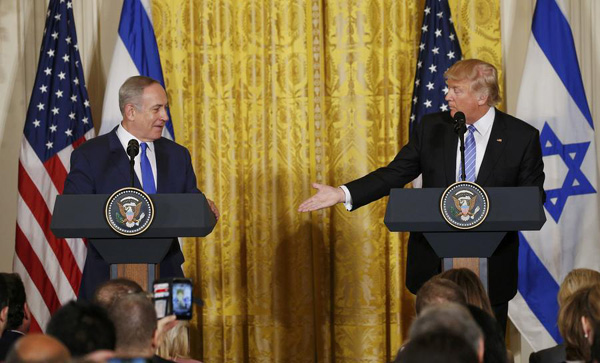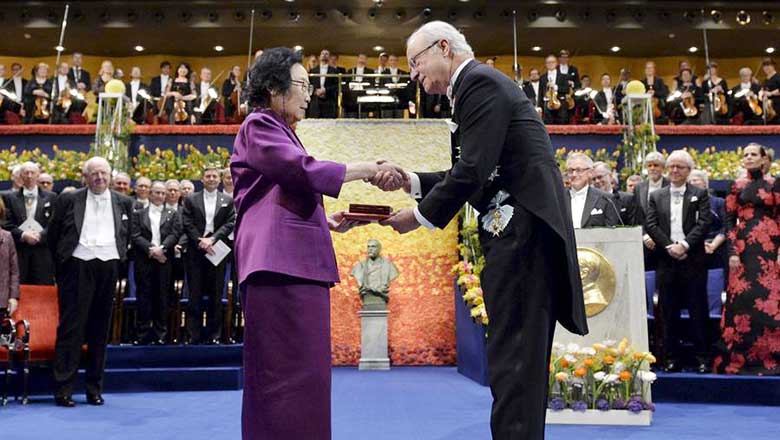Israel awaits Trump's landmark visit with rising anxiety over goals
 |
|
US President Donald Trump (R) reaches to greet Israeli Prime Minister Benjamin Netanyahu after a joint news conference at the White House in Washington, US, February 15, 2017. [Photo/Agencies] |
JERUSALEM - Ahead of a much-anticipated visit by the US President Donald Trump, Israeli Prime Minister Benjamin Netanyahu finds himself in the middle of two conflicting interests.
With his political survival at stake, Netanyahu must also find a way to keep his American ally satisfied.
Just days before Trump's visit to Israel and the Palestinian Authority, anticipation is replaced by tension.
In the run-up to the visit of US President Trump to Israel and the Palestinian Authority, it seems tensions are running higher than expected.
Days before his arrival, a diplomatic row between the two countries arose after an American official was quoted as questioning Israel's claim to one of Judaism's holy sites in Jerusalem.
While the two countries will probably be able to overcome this disagreement, the spat highlighted the growing gap between the expectations the Israeli government has of Trump and how the relationship will actually play out.
Gideon Meir, a former senior Israeli diplomat, believes Israel needs to realize Trump is no longer a candidate on the campaign trail but an American president with a different perspective.
"Israel has to come back to reality and to deal with President Trump, the president who sits in the Oval Office, not in the Trump Tower in New York -- it's different," said Meir.
Throughout his campaign, Trump said he would move the US embassy to Jerusalem, which Palestinians see as part of their future state.
But as he settled into the White House, he becomes less decisive on the matter.
Israel annexed East Jerusalem after capturing it in the 1967 Mideast War. While it considers the united city it's capital, the annexation has never been recognized by the international community.
Moving the US embassy to the city would be a highly controversial move that may result in an upsurge in violence in the region.
Netanyahu heads a right-wing coalition with partners that are more hard-line than him. A senior partner, leader of the Jewish Home party, Naftali Bennett, has been vocal against a Palestinian state. His party has demanded Netanyahu make similar statements in front of Trump.




















